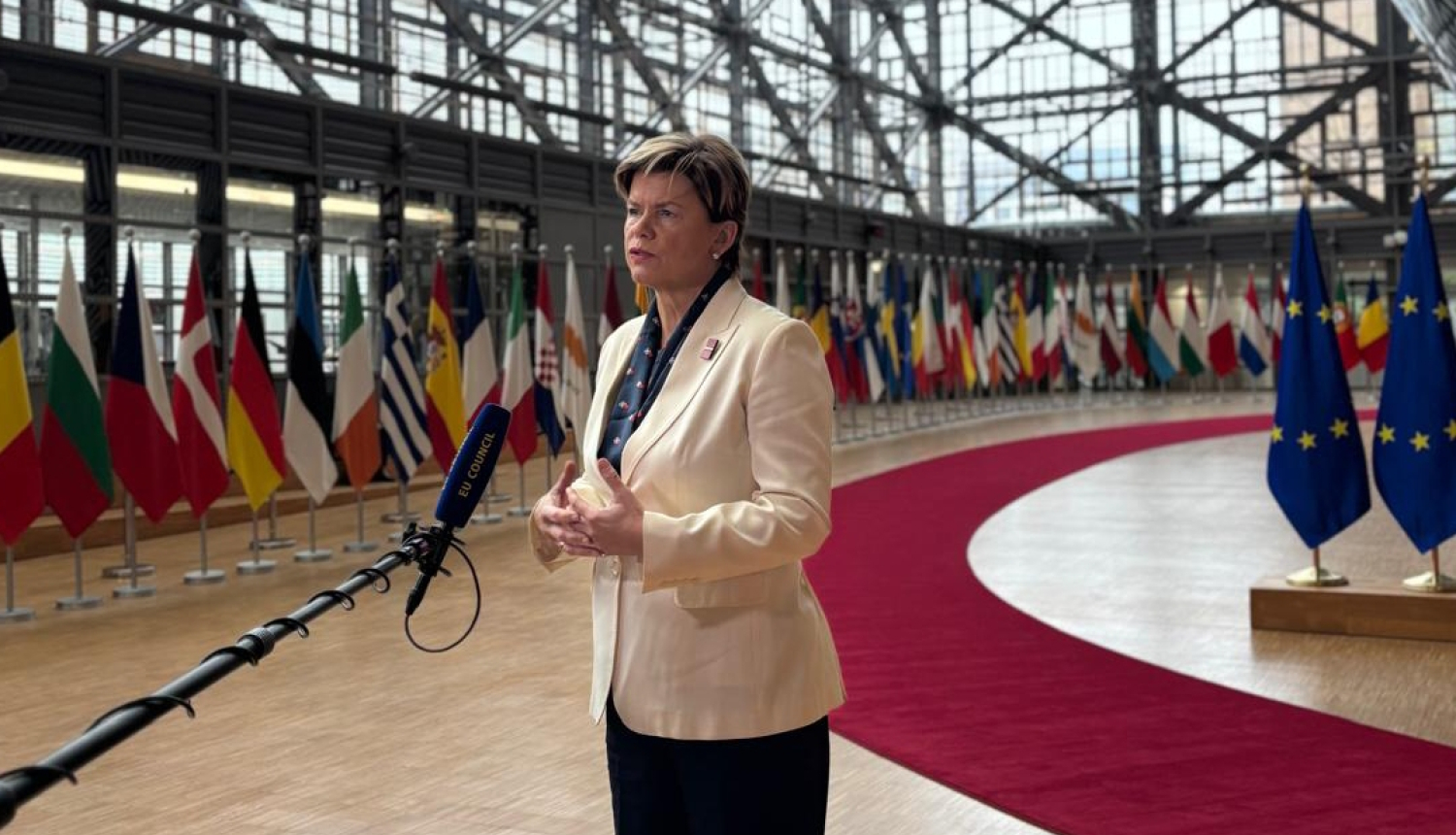On 20 November 2025, at the European Union (EU) Foreign Affairs Council in Brussels, the Latvian Foreign Minister Baiba Braže underlined the urgent need to increase military and financial assistance for Ukraine’s self-defence, find a solution to channel the immobilised Russian Central Bank assets in support of Ukraine, and provide Ukraine with security guarantees. The Foreign Ministers discussed further steps to constrain Russia, including progress on the 20th package of EU sanctions. The Ministers also approved sanctions against 10 Russian individuals – judges, prosecutors, representatives of repressive authorities responsible for serious human rights violations and a crack-down on civil society.
The meeting was attended remotely by the Ukrainian Foreign Minister Andrii Sybiha. He stressed that Russia is carrying out brutal attacks against Ukrainian civilians, including children. Civilian infrastructure and energy facilities are also being targeted – the aggressor is weaponizing winter and frost.
The EU Special Envoy for Sanctions, David O'Sullivan, participated in the EU Foreign Affairs Council and informed the ministers about the work accomplished with global partners so far to prevent the circumvention of sanctions.
Foreign Minister Baiba Braže:
“Ukraine urgently needs military and financial support for self-defence; I call on all EU Member States to help ensure Ukraine’s priority needs, especially air defence and long-range weapon systems, to a greater extent and faster. Latvia’s military support this year will reach 0.3% of GDP, and this includes deliveries of PATRIA armoured personnel carriers, training soldiers, and supply of Latvian-made drones. Latvia will provide further military assistance to Ukraine in the amount of at least 0.25% of GDP in 2026. I also call on other Member States to help ensure continued support to Ukraine.
Pressure on Russia must continue: sanctions are working and need to be strengthened, Russia’s economic situation is deteriorating. As regards the shadow fleet, I call for the imposition of sanctions on the shadow fleet ships and its ecosystem (crew, insurance, bunkering companies) to be separated from the next rounds of EU sanctions, so that restrictive measures could be promptly applied to the vessels.”
Baiba Braže welcomed the newly-created EU Military Mobility Package devised to facilitate a rapid and seamless movement of troops, equipment and military assets across Europe, as well as to strengthen the European defence industry. She also noted that before the EU Foreign Affairs Council she had met with NATO Secretary General Mark Rutte to discuss further support for Ukraine, constraining Russia and strengthening the Alliance’s defence capabilities. Currently, the EU-NATO cooperation is closer than ever before, and it is vital to coordinate it closely, as Russia is and will remain the greatest threat to the security of the entire transatlantic area, and its goals have not changed – to decrease support for Ukraine and divide its allies.
At the EU Foreign Affairs Council, ministers discussed developments in the Middle East and the EU’s involvement in the implementation of the peace plan for the Gaza Strip, cooperation between the EU and the Association of Southeast Asian Nations (ASEAN), and the security situation in Sudan and the Sahel.
Following the EU Foreign Affairs Council, on 20 and 21 November, the EU Indo-Pacific Ministerial Forum, hosted by the EU High Representative for Foreign Affairs and Security Policy, Kaja Kallas. It will also include a high-level event on the protection of critical maritime infrastructure.





